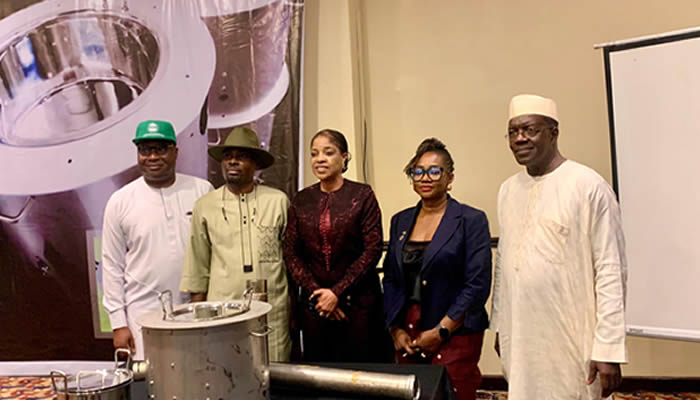The Lagos State Government has embarked on a significant initiative to address the intertwined challenges of air pollution, deforestation, and energy poverty by distributing free clean cookstoves to residents. This ambitious undertaking, known as the 80 Million Clean Cookstoves Project, aims to provide eight million highly efficient wood stoves throughout the state, while simultaneously generating substantial revenue through carbon credits. The project’s launch in the Makoko district marked a pivotal moment in the state’s transition towards sustainable cooking practices. The initiative is not merely a symbolic gesture but a practical step towards improving the lives of Lagosians and protecting the environment.
The free distribution of these advanced cookstoves is expected to bring numerous benefits to households, particularly in rural, semi-urban, and urban areas where fuelwood remains the primary or alternative energy source. The stoves are designed to burn fuel more efficiently, significantly reducing the amount of smoke produced compared to traditional cooking methods. This, in turn, will mitigate respiratory illnesses caused by smoke inhalation, improving the overall health and well-being of residents, especially women and children who are most exposed to indoor air pollution. Moreover, the reduced reliance on fuelwood will contribute to curbing deforestation, preserving vital forest ecosystems.
The 80 Million Clean Cookstoves Project goes beyond simply providing cleaner cooking solutions. It is also designed to generate substantial financial returns for the state through carbon credits. By transitioning to cleaner cooking practices, Lagos will significantly reduce its carbon emissions, which can then be translated into tradable carbon credits on the planned Lagos Carbon Exchange (LCX). This innovative approach is projected to generate over $1 billion in revenue over 15 years, creating a sustainable funding stream for infrastructure development, social programs, and further green initiatives. The LCX, envisioned as Africa’s first subnational carbon exchange, represents a significant step towards building a robust carbon market and driving sustainable development.
The project’s implementation involves strategic partnerships and careful planning. Green Plinth Africa, a climate-focused development partner, plays a crucial role in the implementation of the 80 Million Cookstoves Project in Lagos State. Leveraging existing social registers and databases, they ensure efficient and targeted distribution of the cookstoves to the households most in need. This collaboration is crucial for the project’s success, ensuring that the cookstoves reach those who will benefit most while also laying the groundwork for a sustainable system of biofuel production and distribution. The long-term vision is to create a self-sustaining system where the benefits of the project continually reinvest in further expansion and community development.
The selection of Makoko as the starting point for the project underscores the state government’s commitment to reaching vulnerable communities. Makoko, a largely riverine community, faces significant challenges related to air pollution and access to clean energy. The residents of Makoko, often marginalized and overlooked, are now at the forefront of this transformative initiative, experiencing firsthand the benefits of cleaner cooking technology. Their testimonials highlight the tangible improvements in their daily lives, from reduced smoke and cooking time to improved health outcomes. This localized approach ensures that the most vulnerable populations are prioritized in the drive for a healthier and more sustainable Lagos.
The broader implications of the 80 Million Clean Cookstoves Project extend beyond immediate environmental and health benefits. It represents a significant economic opportunity, particularly for youth, through training in biofuel production. The project’s focus on locally sourced biofuels will create jobs and stimulate economic growth within the community. Furthermore, the project fosters community ownership and empowerment, with residents actively participating in the distribution and maintenance of the cookstoves. This participatory approach ensures the project’s long-term sustainability and reinforces its positive impact on the lives of Lagosians. The initiative is not simply a government handout but a catalyst for community development and empowerment.


